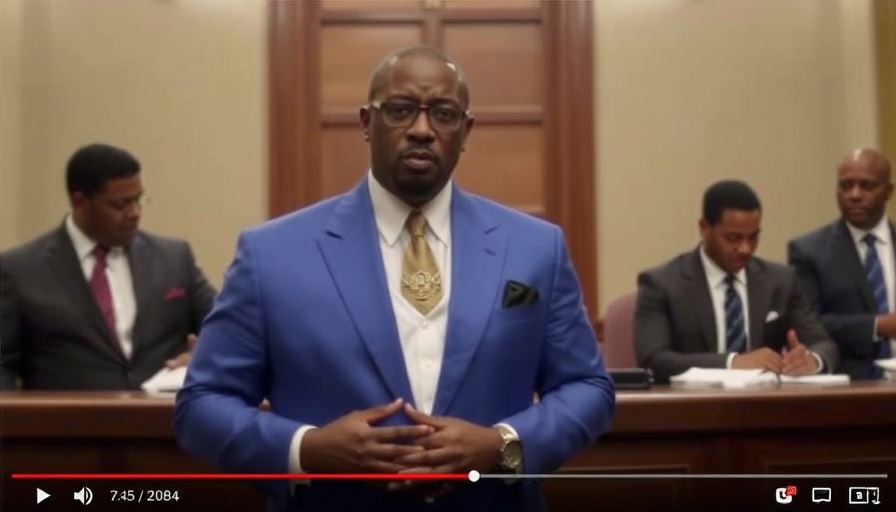
AI-Generated Misinformation: The New Trend Exploited by YouTube Channels
In an intriguing twist of digital manipulation, dozens of YouTube channels are capitalizing on the Diddy trial by creating fake, AI-generated videos. Over the past year, a staggering 26 channels have garnered close to 70 million views by fabricating sensational claims linking celebrities to Sean "Diddy" Combs. This trend is a stark reminder of how technology can blur the line between reality and fiction, prompting us to question the reliability of the information we consume online.
Understanding the Mechanics Behind AI Slop
The term "AI slop" refers to low-quality videos that amalgamate artificial intelligence with misleading narratives. Many of these channels exploit a formulaic approach, crafting eye-catching titles and AI-generated thumbnails that make outrageous allegations about celebrities. The thumbnails often depict these figures in compromising scenarios alongside images of Diddy, alongside shocking phrases designed to entice clicks and views.
Risks of Believing in AI-Infused Content
As John Oliver pointed out, the rise of these AI-generated videos is not just about sensationalism but poses serious risks. With misinformation spreading like wildfire, it's imperative for viewers to discern fact from fiction. The chaotic information landscape showcases the ethical implications of AI, pushing society to navigate its potential dangers while enjoying the advantages that such technologies can offer.
A Profitable Venture or Ethical Dilemma?
Channels engaging in this practice have a rich history of perpetuating falsehoods for monetary gain. Figures like Wanner Aarts have openly stated that jumping on the Diddy bandwagon could be as lucrative as illegal activities. As technology makes it easier to produce and propagate these videos, we must ask ourselves: is the pursuit of profit worth the erosion of truth?
Collective Responsibility: Countering Misinformation
As consumers of media, we hold a collective responsibility to engage critically with the content we view online. Understanding AI and its implications within our media ecosystem can equip us to better filter misinformation. Educational resources on AI — from the basics to advanced insights — could empower audiences to challenge misleading claims and drive a more informed discussion about technology in our lives.
Moving Forward: A Call to Action for Awareness
It's crucial to remain vigilant against the tide of disinformation exacerbated by AI technologies. Educating ourselves and others about the fundamentals of AI can foster a community better prepared to confront misleading media. Let’s challenge ourselves to seek out verified information and support each other in navigating this complex digital landscape.
 Add Row
Add Row  Add
Add 




 Add Row
Add Row  Add
Add 



Write A Comment